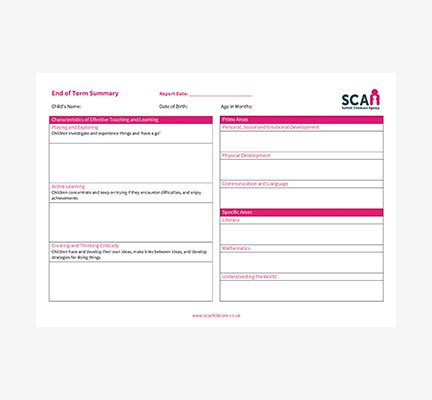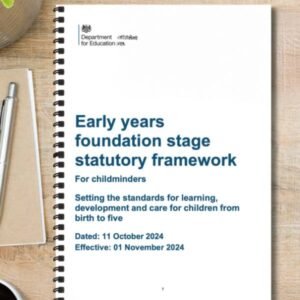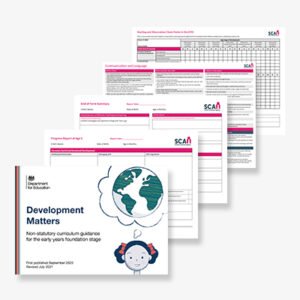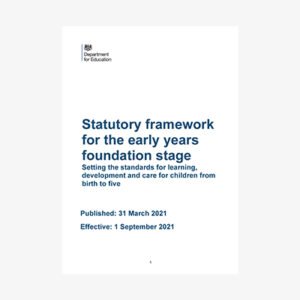Development Matters (Term End)
£2.50
Development Matters (Term End) supports practitioners in reviewing children’s progress and planning next steps at the end of each term. It helps assess achievements across key developmental areas. Practitioners can identify areas where children need further support. The document encourages setting specific, achievable goals for each child. Reviewing progress at term’s end ensures that children receive tailored learning opportunities. It promotes a comprehensive understanding of each child’s development. Development Matters guides practitioners in making informed decisions about future activities. This process helps ensure children are on track to meet key milestones in their early years education.
Supporting Progress Reviews in Early Years
The Development Matters (Term End) process helps childminders and early years practitioners reflect on children’s progress each term.
This term-end review ensures practitioners track development across all areas of the Early Years Foundation Stage (EYFS).
It supports well-informed decisions about planning, interventions, and ongoing support for every individual child.
Why Development Matters (Term End) Reviews Are Important
The Development Matters (Term End) assessment ensures a thorough understanding of how children have progressed during the term.
Practitioners observe, record, and assess each child’s development, focusing on strengths and any emerging needs.
These reviews help provide clear insight into learning outcomes, developmental stages, and future planning goals.
They also help parents understand how their child is developing and where support may be helpful.
Key Areas to Monitor
Term-end reviews cover all seven areas of learning from the EYFS framework.
Practitioners observe communication, physical development, literacy, mathematics, understanding the world, and expressive arts.
They also assess personal, social, and emotional development. These areas influence how children learn and interact with others.
Progress in all areas must align with age-related expectations and observed developmental stages.
What to Look Out For
Check that observations support your assessments. Evidence should match statements found in the Development Matters guidance.
Watch for delays or accelerated learning. Early identification allows for immediate action or enrichment planning.
Make sure assessment records remain current and accurate. Outdated observations could lead to misleading conclusions.
Review the learning environment. It should match the child’s needs, interests, and next steps.
Ensure children’s voices remain visible. Include their choices, preferences, and achievements in each review.
Planning Ahead
Use insights from Development Matters (Term End) to update planning and individual learning journeys.
Discuss outcomes with parents. Invite their views and build stronger home-learning links.
Adjust the environment or activities as needed. This keeps learning focused and engaging for every child.
Conclusion
The Development Matters (Term End) review is essential for tracking progress and guiding future planning.
With consistent reflection and evidence-based assessments, every child receives support to thrive and grow.







 Statutory Framework For The EYFS (DfE)
Statutory Framework For The EYFS (DfE)